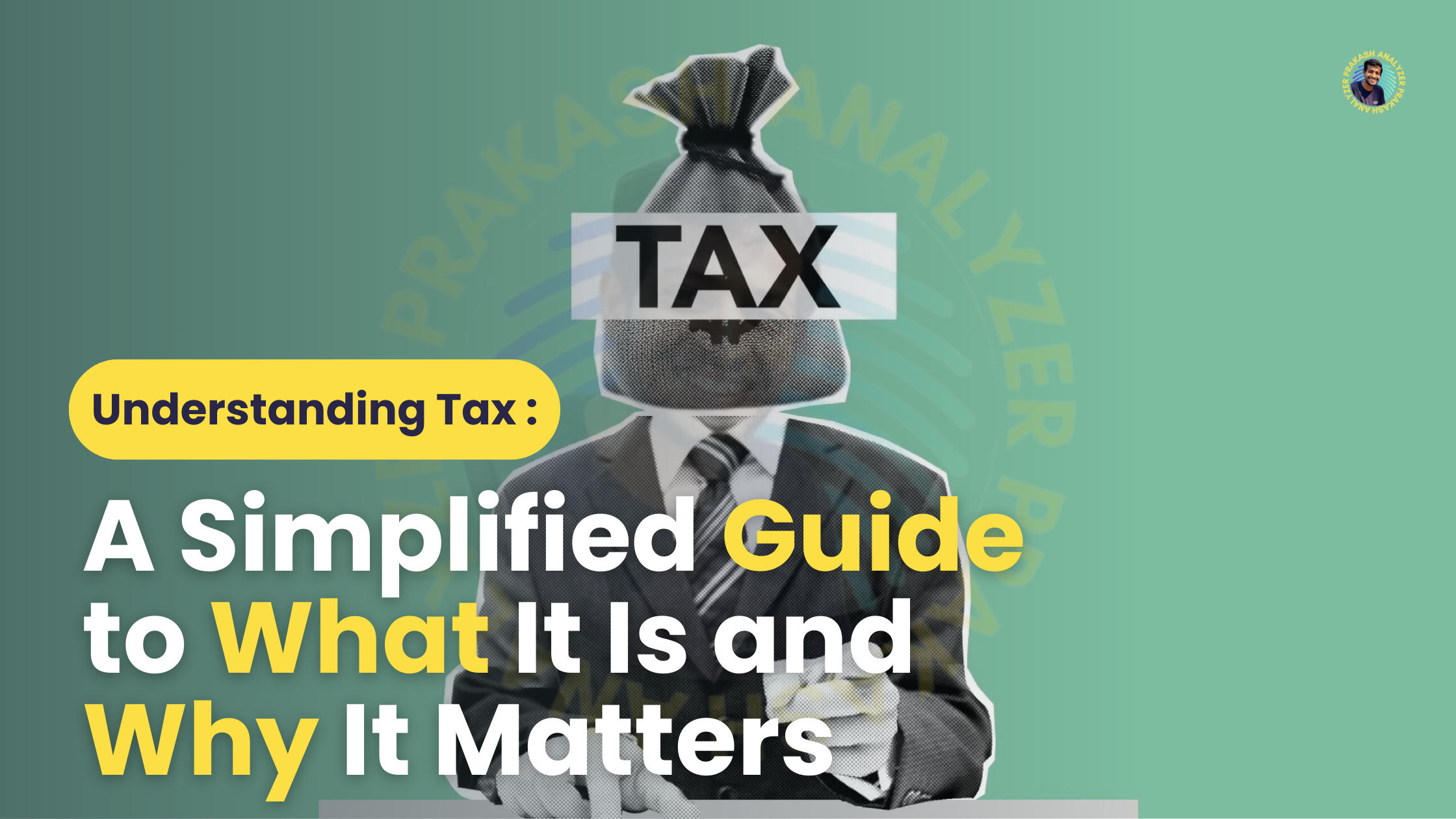We earn money or we spend it; we are always paying taxes, but we, as common men, don’t know how, when, and where we are paying taxes. This article is all about simplifying your understanding of taxes.
Table of Contents
Introduction to Tax
A Standard Definition Tax is: “Tax is a mandatory fee or financial charge levied by any government on an individual or an organization to collect revenue for public works providing the best facilities and infrastructure.” Tax is not a donation it’s a mandatory charge.
Types of Taxes
There are two types of taxes :
1. Direct Tax
2. Indirect Tax
Direct Tax: These are the taxes whose burden is directly imposed on the person and whose burden can’t be shifted to another person. Such examples of direct tax in India are Income Tax, Capital Gain Tax, and Security Transaction Tax.
Indirect Tax: Taxes levied/imposed on the use or consumption of goods or services. It is not levied directly on the income of the person, instead, it’s paid with the product or services. The burden of indirect tax and shifted to the end consumer. Such examples of indirect tax in India are Goods and Services Tax (GST), Service Tax, and Excise Duty.
How Taxes Work
Taxes work in a very complex manner, for people it may look easier by just collecting money from the public and using the same money to run the govt., country, and welfare of the people of the country. The upper liner might sound like tax is easy, it’s just collection and using the same collected money for the people.
But there is more than that it’s not only just collection money, it’s also how much to collect from whom to collect and on which income tax to be collected, and on sale and purchase of products and services. The other thing is utilizing the collected money, saving and creating reserves, and framing a budget for the same, so as to efficiently utilize the money for public welfare and making the country strong.
Collection Of Taxes
As the above indicated taxes are collected in two ways directly or indirectly from the public. Taxes are collected by the taxing authority authorized by the Government. Direct tax is collected by the CBDT (Central Board of Direct Tax) and indirect taxes are collected by the CBIC(Central Board of Indirect Tax and Customs) and some taxes are collected by local authorities such as the Municipal Authority.
Some taxes collected by the CBDT are Income Tax, Capital Gain, Securities Transaction Tax, and Corporate Tax. Some of the taxes collected by CBIC are Sales Tax, Service Tax, GST, Custom Duty, and Excise Duty.
Other taxes collected by the state govt and local authorities are Professional tax, Property Tax, Entertainment Tax, Stamp Duty, Education cess, Toll Tax, Road Tax, and Swachh Bharat cess.
Use of Taxes
Govt prepares a budget and uses the money that is collected in an appropriate way to generate maximum ROI for the country and its people. Here are some uses of tax money; Funding of public infrastructure programs, Law enforcement, public health, education, upliftment of deprived people, and salaries of state and central govt. employees, etc.
Tax Compliance
Often people misunderstand tax compliance and filing as tax payment has to be made to the govt. but that’s not what it only means, tax compliance means the knowledge and eagerness of taxpayers by the applicable tax laws, filing tax returns, and paying due tax amounts on time.
There are numerous types of tax compliance on the business which they have to file while doing business, they have to deduct taxes, prepare returns on the basis of the same, and make payment of taxes before due dates. Aware of tax laws, and how to comply with the law on a timely basis to avoid penalties and fines.
Global Tax Systems
More or less globally the same type of tax systems are followed: Direct and Indirect taxes, but the name may be different. Some countries don’t have any tax on income individual means they can make tax-free income while the majority of countries have tax on income.
Indirect taxes are a major source of income to the govt. and in some countries, GST ( Goods and Services Tax) is followed. In some countries like India, Canada, Brazil, etc., dual GST is followed and in some countries like Europe, countries do follow a single GST modal.
Conclusion
A basic knowledge of taxation can help you understand where you are paying taxes and how the use of your tax money will make a difference in society. When a tax obligation arises when to make tax payments and how much tax needs to be paid.
Taxes are essential for the development of a nation, funding public services, infrastructure, and welfare programs. By understanding the types of taxes and their purpose, individuals and businesses can better comply with tax laws and contribute to national progress. Paying taxes is not just an obligation but a way to support the growth and stability of society.
Love Reading What i write Click Here To Subscribe My Newsletter For Free.


